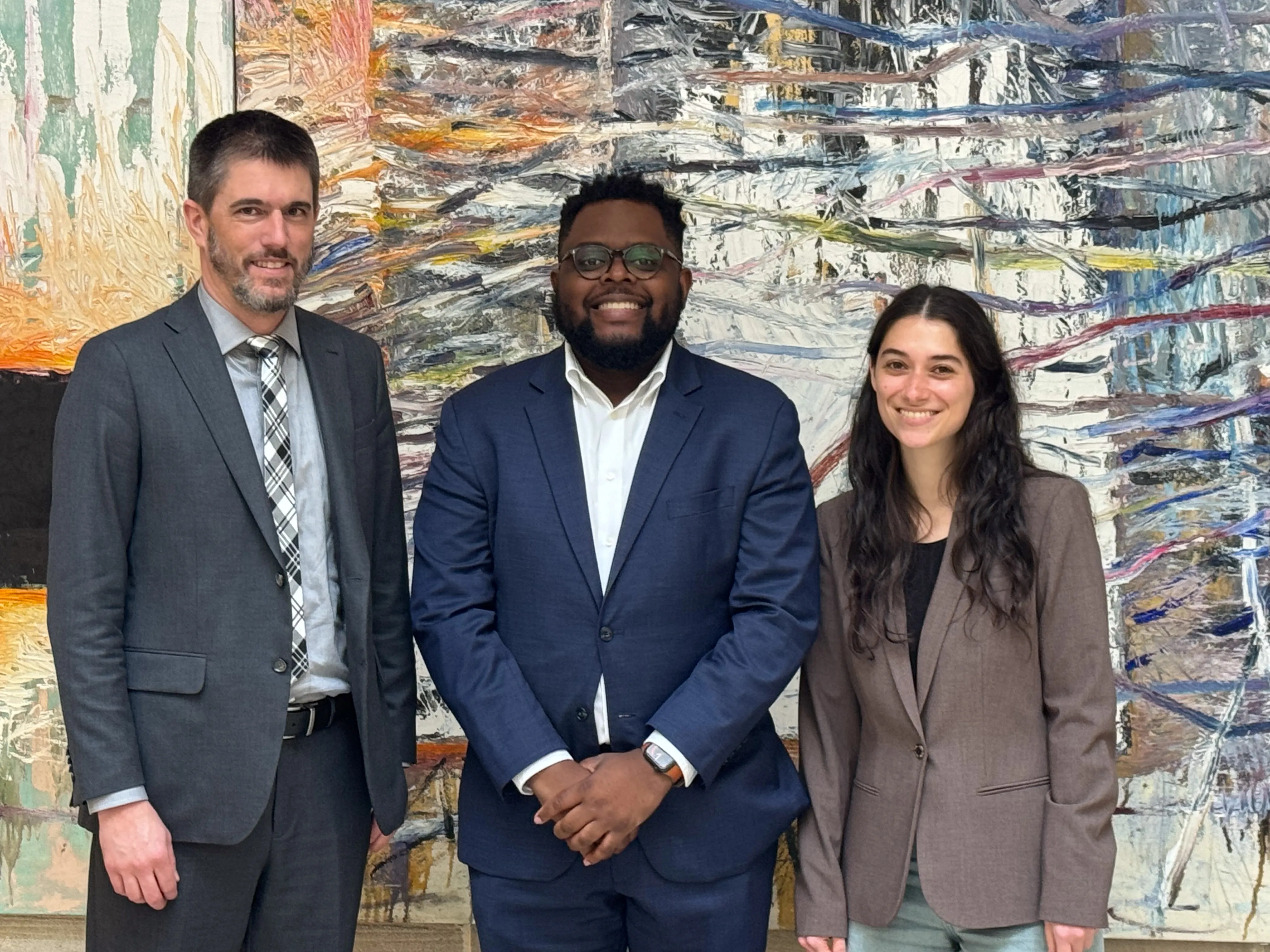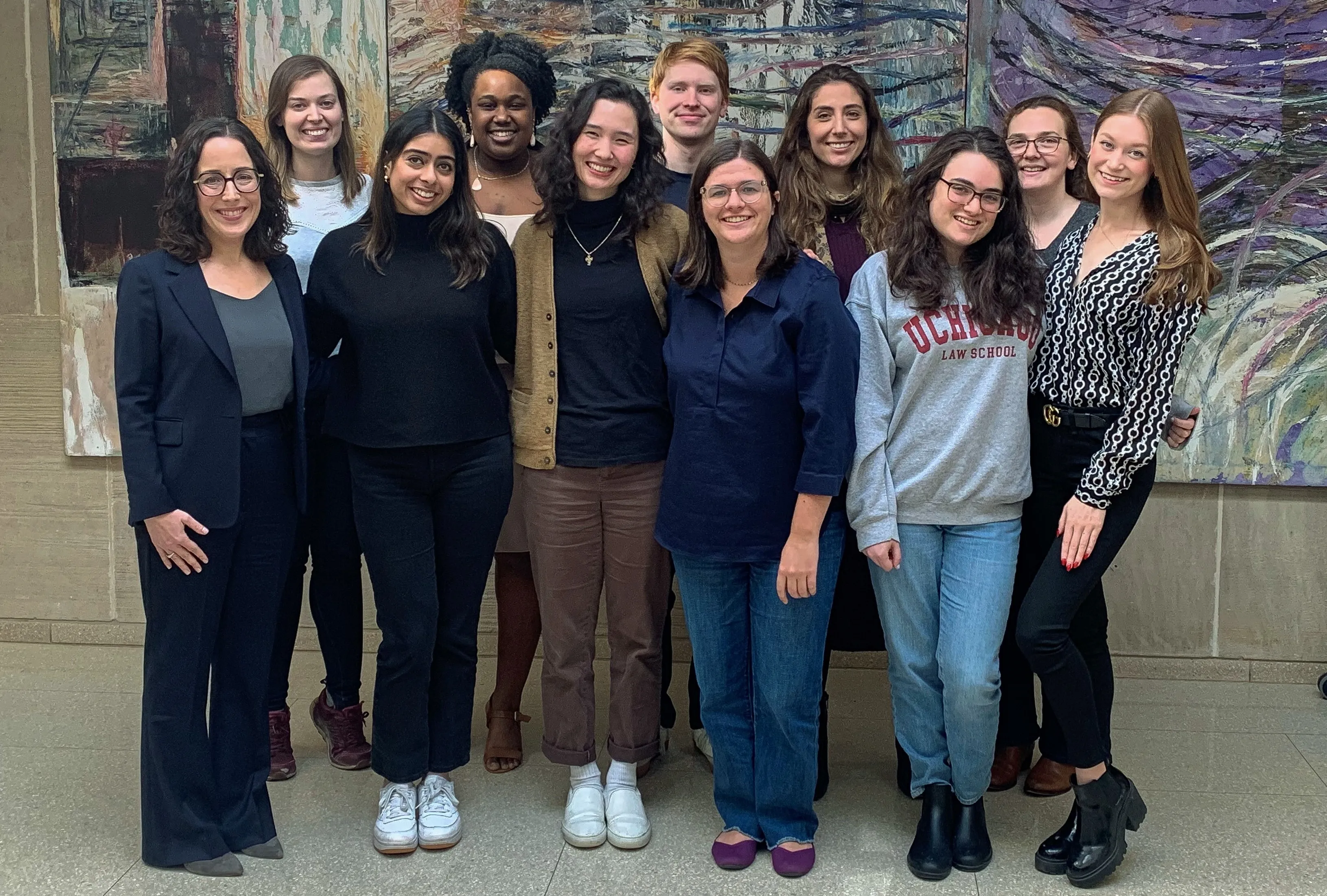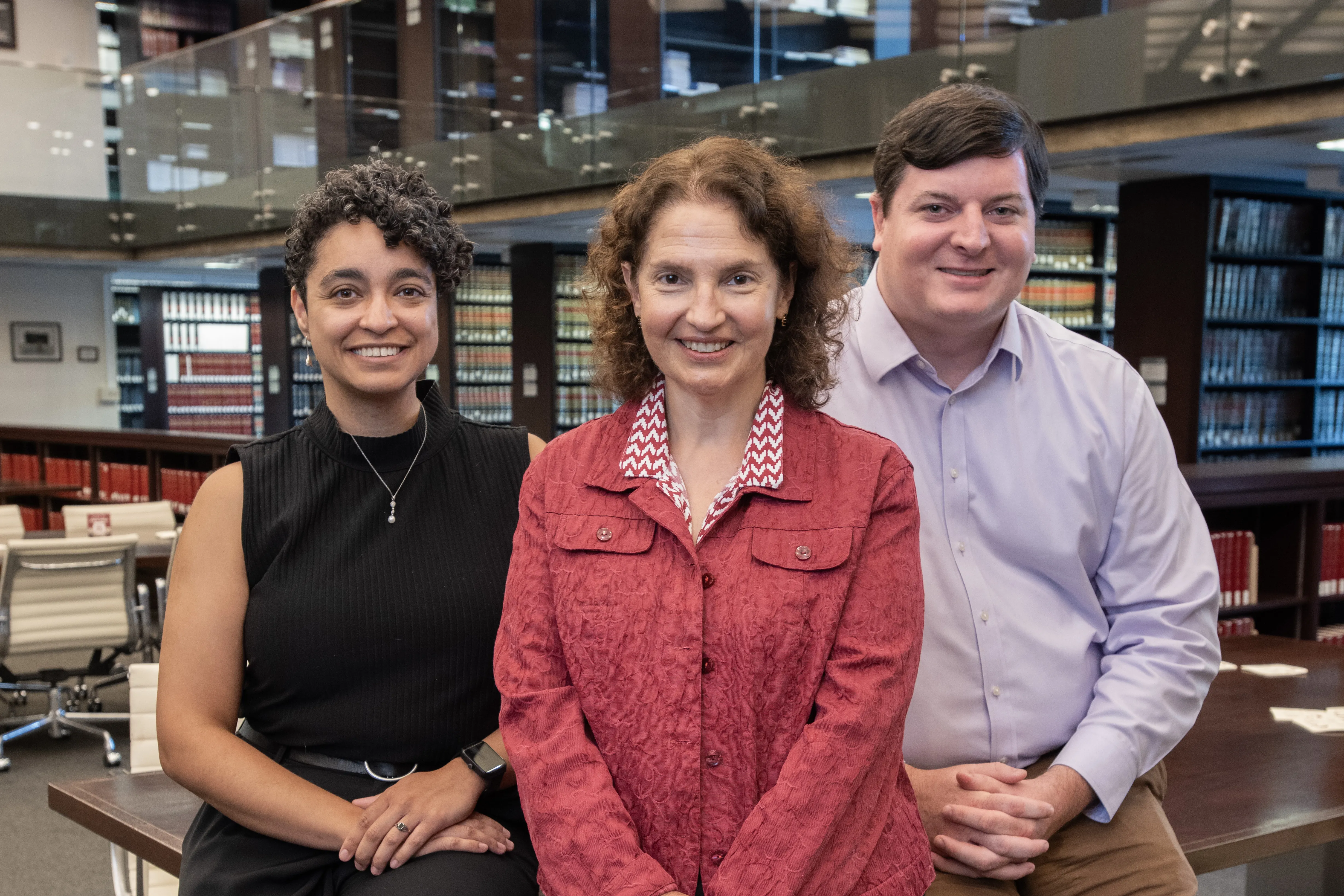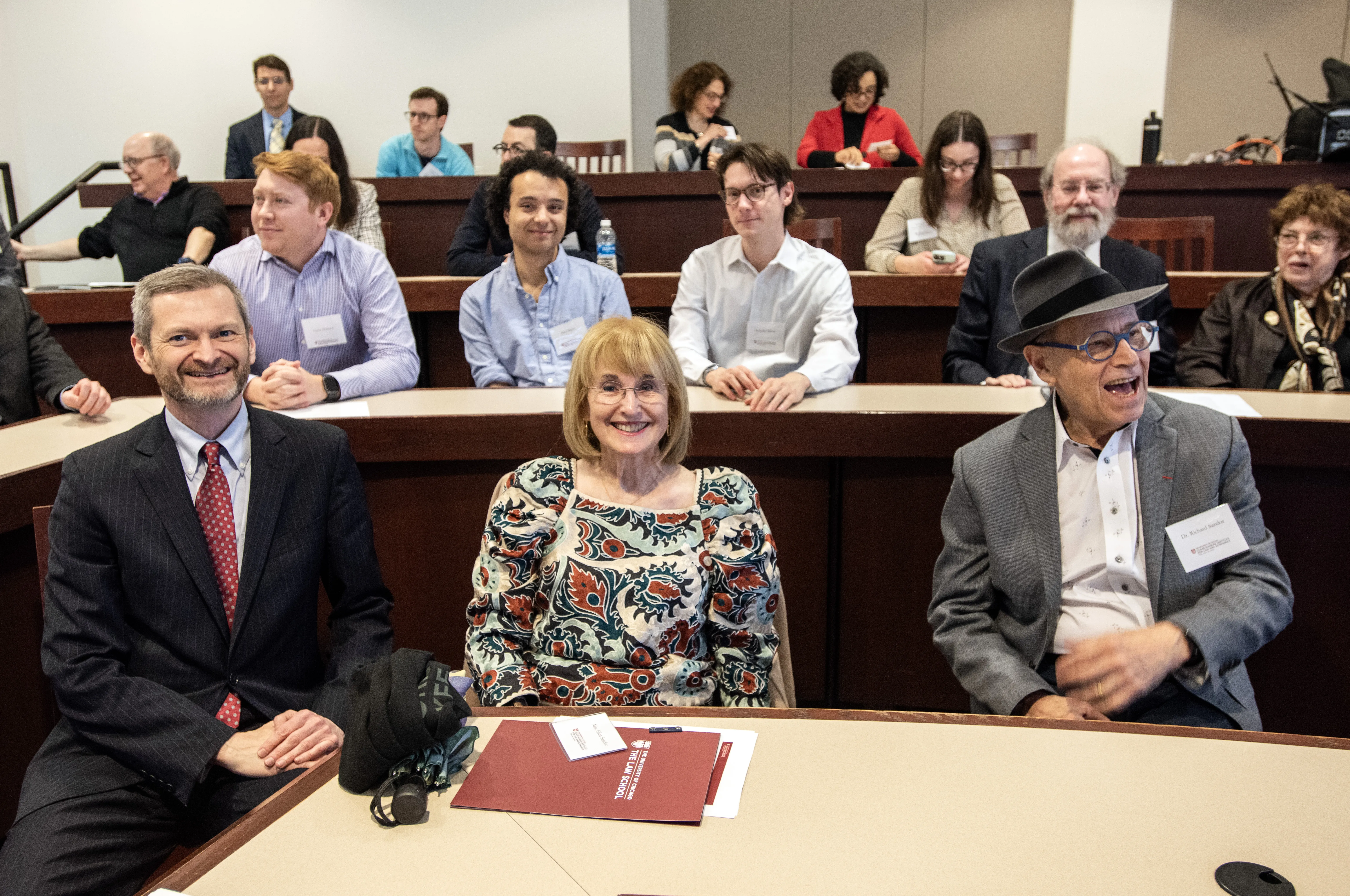Law School Students Help Achieve Three Significant Victories for Exoneration Clinic

The Law School’s Exoneration Project marked three significant victories this spring. Working closely with faculty, law students helped secure relief for three individuals who were wrongfully convicted: Sean Tyler, Anthony Robinson, and Eruby Abrego.
Tyler, who, along with his brother, was wrongfully convicted of murder in 1995, has been a client of the Exoneration Project since it first opened in 2007. “We’ve had generations of students and several instructors work on Sean’s case over the years, so this is a monumental victory not just for Sean but also for the clinic,” said Karl Leonard, ’09, the clinical instructor who led the case.
Though exonerated in 2021, Tyler and his brother were finally granted certificates of innocence by the Cook County Criminal Court in April. Christian Pierre-Canel, ’24, and Julia Kaba Aboud, ’24, were the two most recent Law School students to work on Tyler’s case, handling the arduous process of attaining Tyler’s certificate.
“Before joining the clinic, I didn’t realize there’s more fighting to be done after you’re exonerated,” said Kaba Aboud, who has worked at the Exoneration Project since her 1L summer. “I thought that once you’re exonerated, that’s the end of the story. But there’s so much that goes into clearing your name, and it’s heartbreaking.”
Pierre-Canel, who has worked for the clinic for a year, said it has been the highlight of his Law School Experience.
“Sean’s painful but triumphant journey shows how powerful UChicago Law has been in this aspect of the legal sphere through the work of the Exoneration Project,” he said. “This case is an incredible example of the importance of the clinic’s slow march towards justice, the direct impact that exoneration work has on our local and state communities, and the experience it offers students to directly play in the lives of clients as well as on the greater justice system.”
A "Physically Impossible" Case
The second clinic victory this spring was in assisting Anthony Robinson, who was wrongly convicted on what Clinical Instructor Lauren Myerscough-Mueller says was the “thinnest evidence I’ve ever seen.” The case involved a 2013 murder and attempted murder, with the perpetrator being caught on surveillance video chasing down the victims at full speed.
That video proved to be key. Robinson had had a broken leg at the time of the crime, so it was physically impossible for him to have been the perpetrator. This crucial piece of information, however, was never considered—not when Robinson initially told police he could not have committed the crime due to his leg, and not during his bench trial, where two eyewitnesses testified that it wasn’t him. There also wasn’t any physical evidence tying him to the crime. Even so, the judge believed the surviving victim’s police statement despite his later recantation on the stand.
The Exoneration Project took Robinson’s case in 2019 and quickly put clinic students Erica Tietz, ’24, and Malik Allen, ’24, to work. They spent a significant amount of time tracking down medical records of the several leg surgeries Robinson had had in the few weeks before the crime. They also helped identify the actual perpetrator and obtain several affidavits attesting to his confessions and motive.
“This case taught me the true extent of how unfair our criminal justice system can be,” said Allen. “If the system had worked appropriately, Anthony would have never been incarcerated. It was just so avoidable.”
The state dismissed the charges this month and has already decided to not intervene in future certificate of innocence proceedings.
“Unfortunately, this sort of thing happens more than it should,” reflected Myerscough-Mueller. “The police didn’t follow up on the evidence and neither did the prosecution. But that’s why we do this work. This victory would not have happened without the students' tireless efforts on Anthony’s behalf.”
A Significantly Student-Led Victory
Eruby Abrego was the third Exoneration Project client to celebrate a victory this spring, in another case led by Clinical Instructor Leonard. Abrego, who had been wrongfully convicted of murder in 1999, was granted a certificate of innocence in April.
“Abrego’s case saw significant student involvement throughout the litigation, including a lot of in-court advocacy,” said Leonard.
Abrego was exonerated in 2022 after wrongfully spending twenty-three years in prison. The evidentiary hearing that led to his release involved clinic students advocating for him in court; Kimberly Johnson, ’22, delivered the opening statement and Lauren Spungen, ’22, put on the testimony of a key witness.
When the time came for his certificate of innocence petition and proceedings, clinic students were once again centrally involved. Kaba Aboud, who had worked on the Sean Tyler case, and Gabrielle Candes, ’24, drafted his petition. Then, at his certificate of innocence hearing, Kieran Dosanjh, ’24, delivered the opening statement while Allen, who had worked on the Robinson case that involved the broken leg, argued a successful motion to exclude inadmissible hearsay evidence. After two days of evidence and argument, the Exoneration Project achieved its victory.
“Telling Eruby’s story to the court through our opening statement was incredibly rewarding,” said Dosanjh, who has worked for the clinic for two years. “It was clear how difficult it was for him to be back in the same courthouse where he was wrongfully convicted so many years ago. Representing a real client put my legal education into perspective. It bridged the gap in my mind between the abstract legal doctrine I was learning and the real-world impact I can have during my career as an advocate.”



